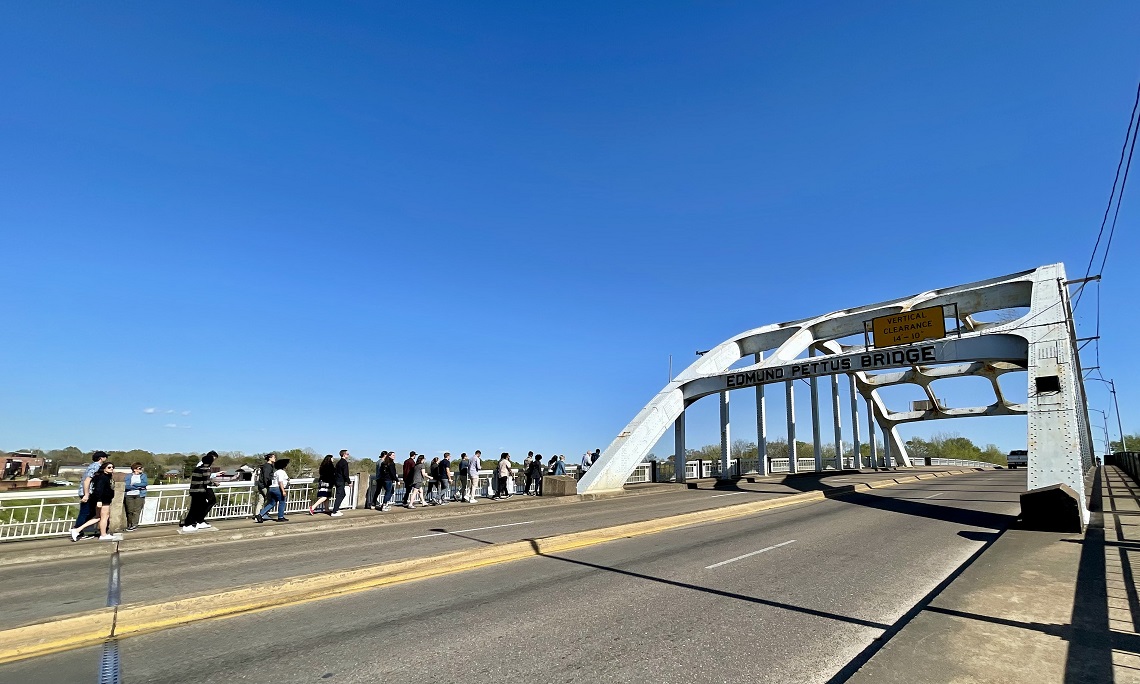Race, Culture and Business
Immersive study tour through the American South leaves Foster MBAs feeling educated—and inspired
A group of MBA students at the University of Washington Foster School of Business embarked on an immersive journey over spring break to learn about race, culture and business in the American South.
The inaugural program was created by Ed deHaan, the Gerhard G. Mueller Endowed Professor in Accounting, who was questioning how he could become a more impactful educator through the lens of diversity, equity and inclusion (DEI).
The 20 participants included international students and many who had never visited the southern United States. They experienced an emotional history lesson on the economics and legacy of slavery. From the transatlantic slave trade and its impact across North America to the recent Black Lives Matter movement and today’s business focus on DEI, the trip showcased a timeline of the racial and socioeconomic makeup of the country.
“I thought: let’s go to the South,” says deHaan, a Louisiana native. “Let’s understand the history of racial disparity in the country.”
In January of 2021, deHaan and the Global Business Center (GBC) were awarded a Foster Purpose Grant to carry out the idea. The seed funding provided an opportunity to partner with Sankofa Impact, a Seattle-based nonprofit that leads place-based experiences for groups interested in learning about the history of racism and resistance in the United States.
Sankofa Impact curated a seven-day trip that included visits to key sites along the Civil Rights Trail, from Louisiana (New Orleans) to Mississippi (Jackson and Clarksdale) to Tennessee (Memphis) to Alabama (Birmingham, Montgomery and Selma).
Community and context
Students participated in five pre-trip class sessions—GBC’s international study tours typically require two—that helped equip them with some contextual knowledge on the importance of the region and historical events.
The classes focused on the economics of slavery, post-slavery economic exploitation, the business case for DEI and efforts to promote DEI in the workplace. The sessions also served to build community among the participants, according to student co-lead Cameron Boyd (MBA 2022).
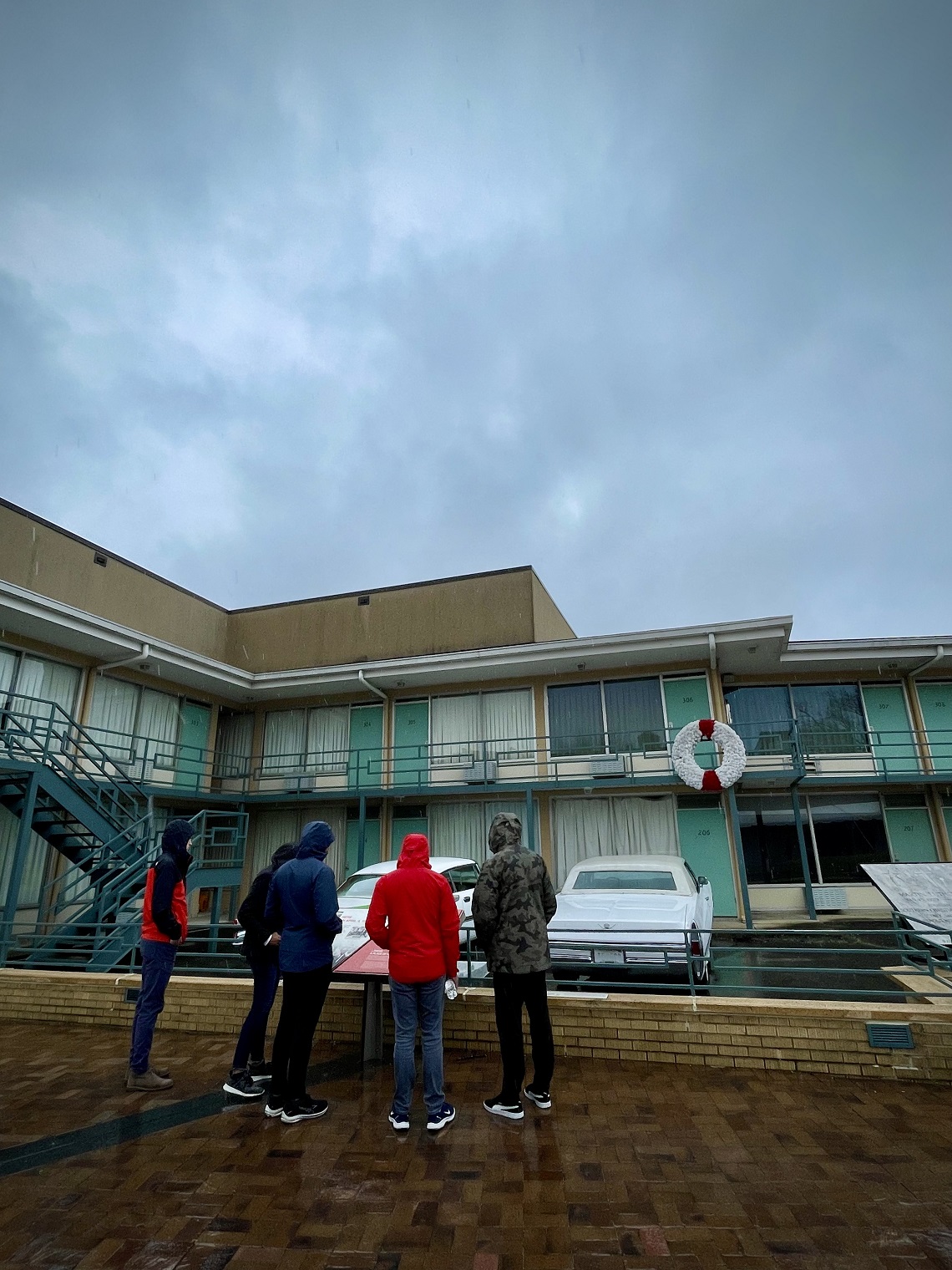
“We were talking about really heavy stuff, and it takes a certain amount of vulnerability to be able to share how you’re personally impacted by prejudices or to admit where you haven’t had experiences and how you have room to grow and learn,” says Boyd. “It was important to have a sense of safety among the students.”
The trip began with a visit to the Whitney Plantation in Louisiana—the only plantation museum in the nation that focuses on the lives of enslaved people. While there, students focused on the economics of enslavement.
This, Boyd says, required exploring some critical questions: “What kind of wealth did this slave trade generate, and why was that such an important piece of the American economy? How did generating all that wealth and then excluding some people from the benefits of that wealth inform and impact the way that our society is set up now?”
Epicenter of injustice
One of the most memorable visits for all was to Burnell’s Market in the Lower Ninth Ward neighborhood of New Orleans. Nearly 17 years after the devastation caused by Hurricane Katrina in August 2005, the mostly Black neighborhood has been unable to fully rebuild.
Student co-lead Jerrell Patacsil (MBA 2022) recalls feeling like Katrina had just hit a few weeks ago. “It is amazing to think about how long it’s been and they’re still experiencing the remnants,” he says.
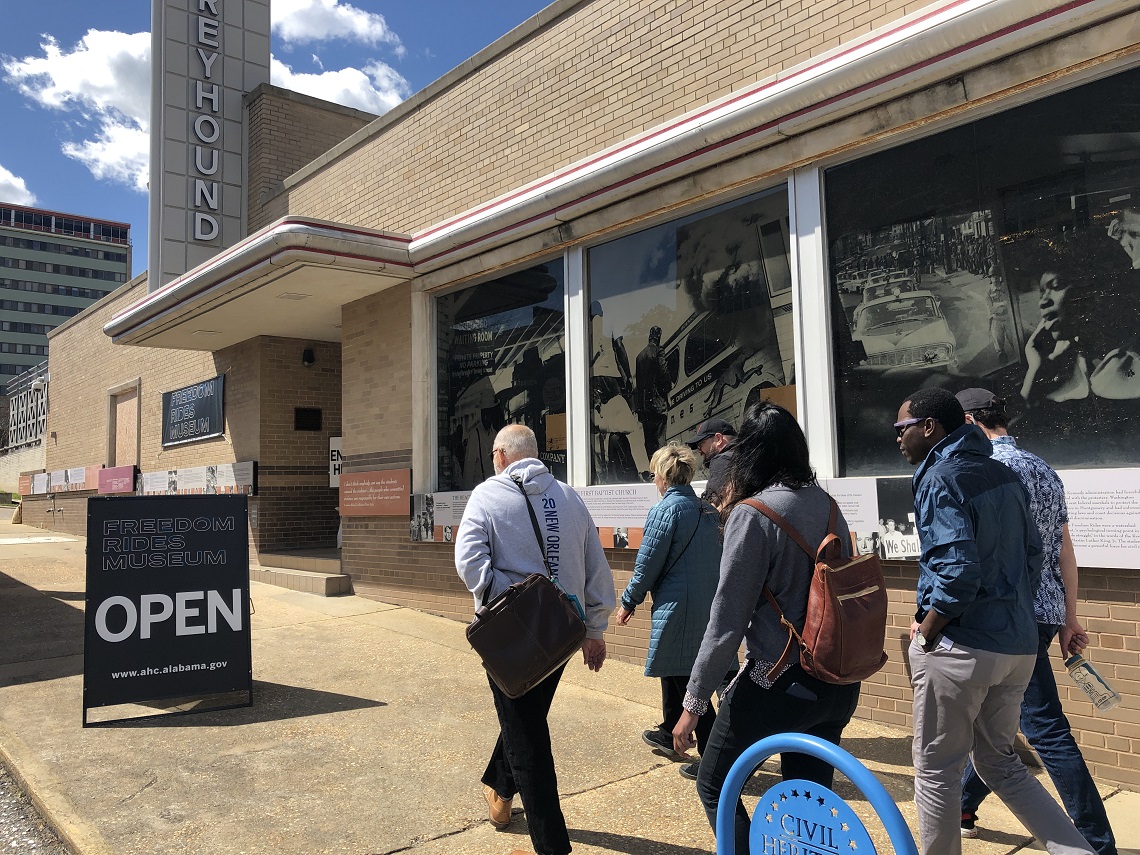
With a 71% decrease in population, according to the US Census, large retail and wholesale companies did not rebuild in the area. Many affected by Hurricane Katrina were unable to make the hour-long, two-bus commute to the nearest store, which left market owner Burnell Cotlon as the sole provider of groceries and basic necessities in the area.
“There was no grocery store and that was the pressing need,” says Boyd. “(Burnell) could make a difference in terms of addressing those inequalities. So, he totally bootstrapped the store by himself, and was able to meet the needs of his community.”
If there’s one thing I got out of this entire trip, it’s hope.”
Though the students wanted to help Cotlon build a better business plan, the group quickly understood that not every socio-economic problem can be resolved on one trip. They also reflected on the conception of “saviorism” and ways to become more effective allies.
“I think it’s important for anyone who is an ally or cares about this cause to meet people where they are by having empathy and understanding,” says Sasha Duchin (MBA 2022) “Also, by being a really active listener and not judging other people for what they are trying to do.”
Misguided monuments
Duchin recalls Montgomery as the most impactful part of her experience. She learned about the 2017 law prohibiting cities from removing Confederate monuments. And one larger-than-life statue in particular stood out to her. It depicts Dr. James Marion Sims, known as the “father of gynecology” in the US.
To achieve this title, though, Sims performed experimental medical procedures without anesthesia on Black women he owned as slaves.
Duchin, whose family works in the medical field, shared how impactful it was to learn the whole story about such an important part of women’s health history. “I came back and told my mom and my sister about it, and they had no idea,” she says. “That really hit home from that point of changing the narrative.”
The following day, Duchin and a group of her female classmates decided to visit Michelle Browder’s newly installed “Mothers of Gynecology” monument that honors three of Dr. Sims’ enslaved subjects: Anarcha, Lucy and Betsey.
Time to affect change
Duchin believes that it’s time to change the narrative that is taught in grade school to get a full understanding of American history and its impact on society today. She shared how being physically present in the American South brought a lot of value and understanding and reenergized her desire to teach breathwork and wellness techniques to incarcerated people or those in transitional living.
She also looks forward to incorporating DEI awareness and practices into her future consulting career.
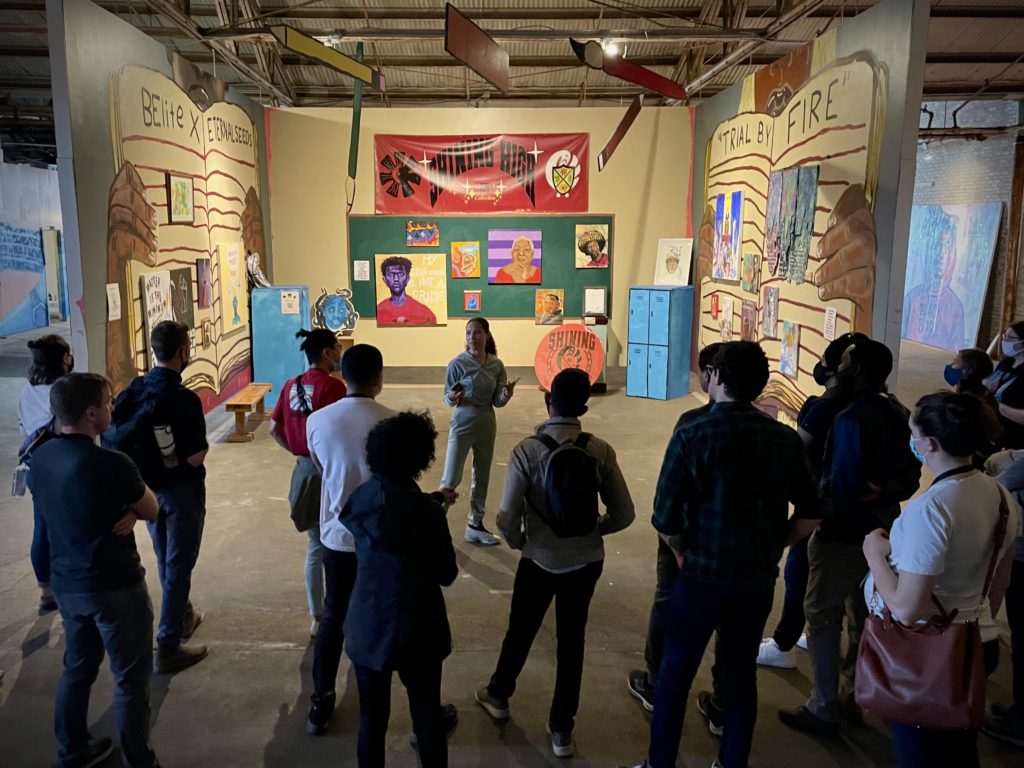
In his own nascent consulting career, Patacsil plans to bring consulting and capital resources to underserved communities. He recalls meeting with Norman E. Barnum IV, the CEO of the New Orleans Business Alliance, who energetically spoke to the group about driving growth and economic improvement through businesses. “Business has the opportunity to create so much growth and change and economic prosperity, and so this trip, for me, really solidified the need for that,” says Patacsil.
He hopes this program will continue to offer students an immersive experience that opens their eyes to various challenges in their own communities. “If there’s one thing I got out of this entire trip, it’s hope,” Patacsil says. “I saw so many people choosing to spend their free time learning about this history.”
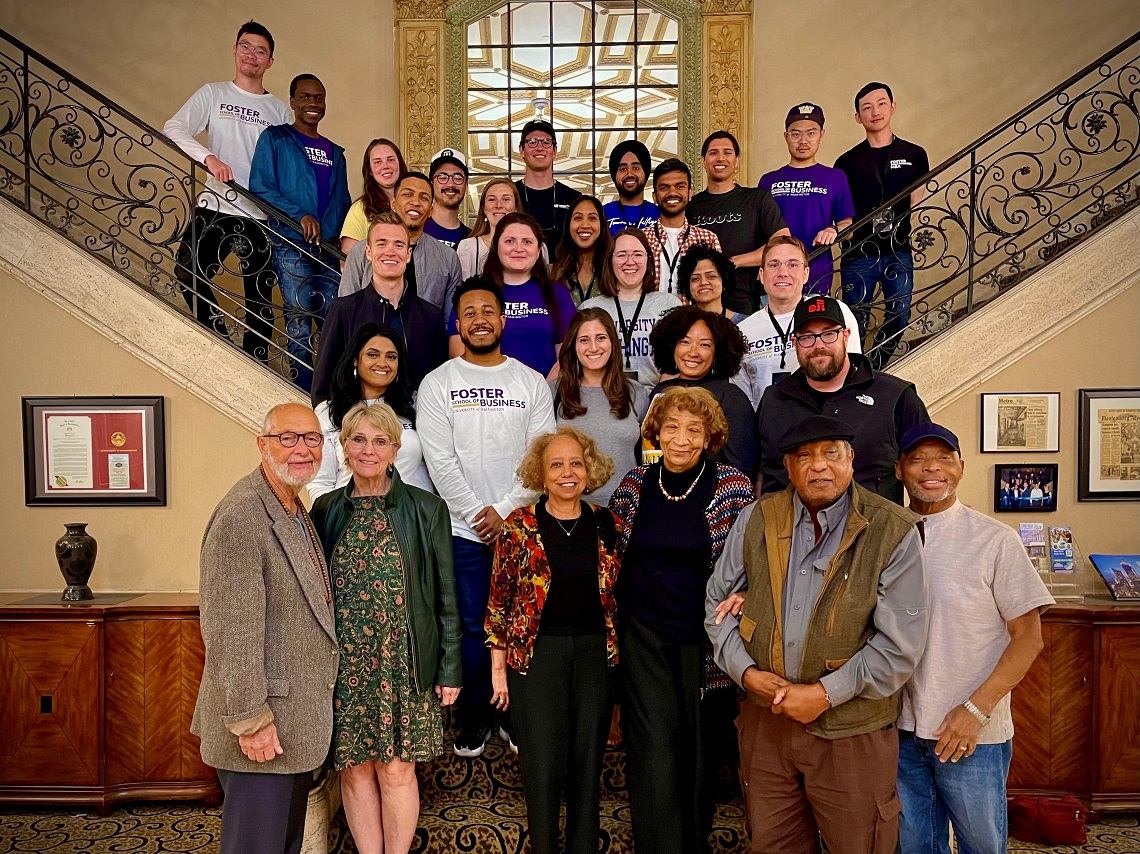
Like the participating students, deHaan hopes this immersive trip was the beginning of a larger program with a curriculum that focuses on the various regional industries that effect the nation’s broader social structure and explores the way that issues of race and culture are inherently central in the American economy. In partnership with the GBC, he wants to provide students with indelible domestic experiences that prepare them to join the workforce intent on bettering humanity.
For more information on Race, Culture and Business: MBA Immersion to the American South or if you would like to financially support this program, please contact the Global Business Center. Learn more about this indelible experience through the eyes of MBA Rebecca Ballweg.

